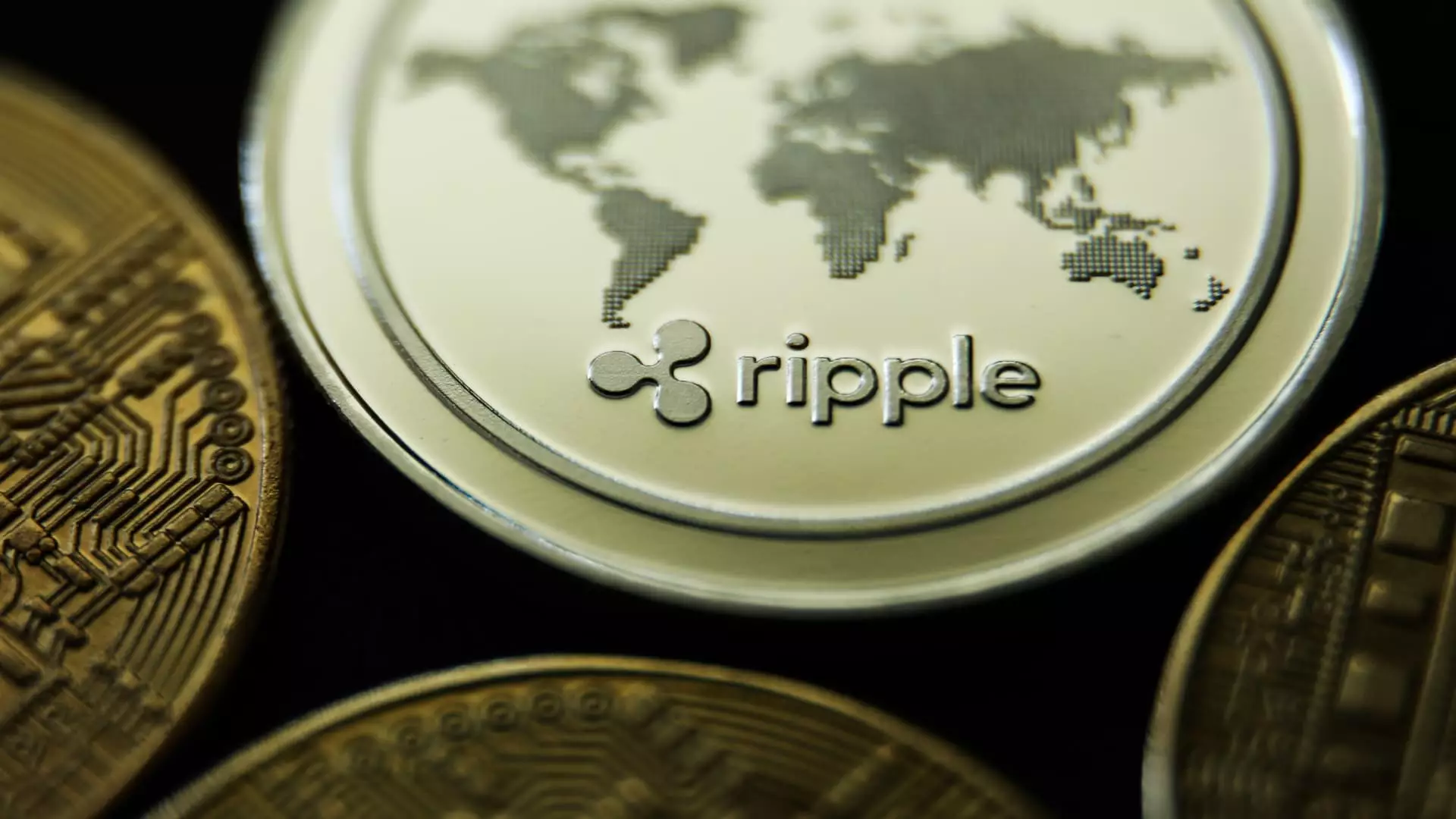In a significant development for the cryptocurrency industry, Ripple, a blockchain startup based in San Francisco, has recently expanded its offerings to enter the burgeoning realm of crypto custody. On Thursday, Ripple launched a suite of services under its newly established Ripple Custody division, designed specifically for banks and financial technology (fintech) firms to securely store digital assets for their clients. This marks a pivotal moment not only for Ripple as a company but also for the growing need for robust crypto storage solutions as digital assets gain prominence.
Diversifying Beyond Payments: Ripple’s Strategic Shift
Historically known for its payment settlement solutions through RippleNet, a blockchain-based messaging network that facilitates real-time money transfers globally, Ripple’s new initiative signifies its intent to diversify its business model. The introduction of Ripple Custody aims to cater to the increasing demand from financial institutions for reliable methods to handle digital assets, which are vital for the future of finance. By launching this custody service, Ripple seeks to transform itself from merely a payment transfer facilitator to a comprehensive service provider in the digital asset ecosystem.
The offerings include a variety of innovative features tailored to the needs of banks and fintech clients. These features encompass pre-configured operational and policy settings, seamless integration with Ripple’s proprietary XRP Ledger blockchain, and mechanisms in place for monitoring anti-money laundering risks. Each of these aspects highlights Ripple’s commitment to creating a user-friendly, compliant, and secure environment for its clients.
As the cryptocurrency market matures, the necessity for crypto custodians becomes increasingly clear. Custodians play a critical role, safeguarding private keys that are essential for accessing and transacting digital assets. Beyond simple storage, effective custodians handle payments, facilitate settlements, and ensure compliance with evolving regulatory frameworks across different jurisdictions. The expanding need for these services is underscored by projections that the crypto custody market could exceed $16 trillion by 2030, according to data from the Boston Consulting Group.
Ripple’s entry into this space is timely and strategic, as it finds itself competing against established entities like Coinbase, Gemini, and Fireblocks, all of which offer comprehensive custody solutions. This competitive landscape is marked by rapid growth and evolving client needs, and Ripple appears to be leveraging its existing technology and customer base to carve out its own niche.
Tokenization: A Forward-Thinking Approach
One of the standout aspects of Ripple Custody is its forward-thinking approach to tokenization. Ripple envisions a future where real-world assets—such as fiat currency, commodities (like gold and oil), and real estate—can be digitized and traded seamlessly as digital tokens. This aligns with the broader trend of asset tokenization, which promises to revolutionize ownership and liquidity in various markets. Ripple’s integration of its XRP Ledger into custody services not only ensures secure transactions but also delivers access to a decentralized exchange, enabling direct trading without intermediaries.
The potential impact of tokenization through Ripple Custody could attract various sectors looking to modernize asset management and trading strategies.
While Ripple celebrates this expansion, it must navigate its complicated relationship with regulatory authorities, particularly the U.S. Securities and Exchange Commission (SEC). The uncertain legal status of XRP, which Ripple fundamentally relies on, poses risks. Following the SEC’s decision to appeal a recent court ruling that suggested XRP should not be classified as a security, the price of XRP saw a considerable downturn. This regulatory environment places pressure on Ripple as it attempts to grow its custody business, signaling that its journey is fraught with challenges.
However, this same scrutiny could present opportunities for Ripple Custody to differentiate itself as a compliant and robust option for institutions that prioritize regulatory adherence and operational security.
Looking Ahead: The Future of Ripple Custody
As Ripple positions itself within the crypto custody market, the company is not proceeding in isolation; it benefits from strategic acquisitions that bolster its capabilities. The acquisition of Metaco, a company focused on crypto management, alongside Standard Custody & Trust Company, significantly enhances Ripple’s infrastructure and service offerings.
The expansion into custody aligns naturally with Ripple’s overarching vision of integrating digital assets into mainstream finance. By focusing on secure, scalable solutions for digital asset management, Ripple is poised to influence the next wave of financial technology, despite the turbulence surrounding its principal cryptocurrency. The company’s ability to adapt and scale in the face of regulatory pressures could ultimately play a critical role in its success.
Ripple’s move into the crypto custody space stands as a testament to its evolving identity and ambition to lead in digital finance. Through strategic innovation and a focus on regulatory compliance, Ripple Custody may not just navigate the complexities of the crypto landscape, but thrive within it.

